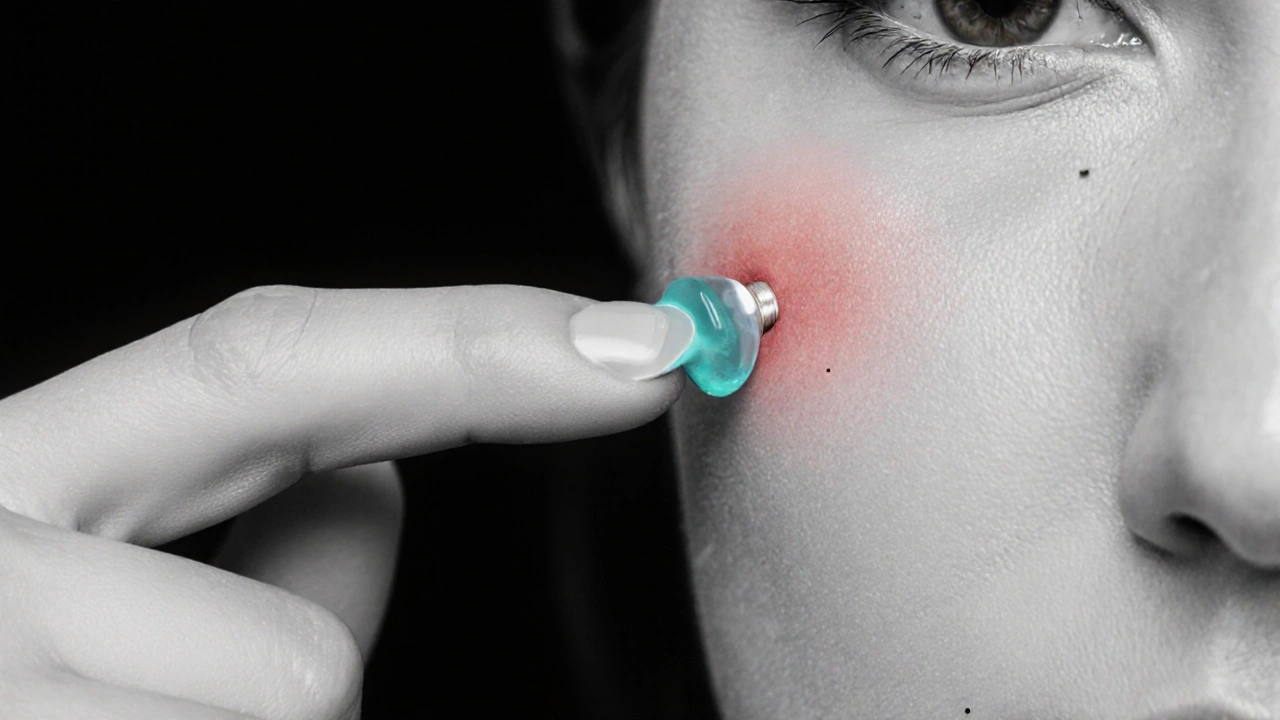Acne Treatment: Evidence‑Based Options and Real‑World Advice
When working with acne treatment, the collection of methods used to reduce, prevent, or clear acne lesions on the skin. Also known as acne therapy, it blends medicines, lifestyle tweaks, and professional care to tackle the problem from several angles.
One of the biggest drivers behind breakouts is hormonal fluctuation. Hormonal acne, acne linked to changes in estrogen, progesterone, or androgen levels often spikes during puberty, menstrual cycles, or pregnancy. Understanding this link helps you pick the right strategy—whether it’s a hormone‑balancing pill, a gentle cleanser, or a diet tweak. For anyone expecting a baby, pregnancy acne safety, guidelines for using acne medication without harming the developing fetus becomes critical, because many topical and oral drugs carry specific FDA categories.
Topical agents remain the first line of attack for most people. Topical retinoid, a vitamin A‑derived cream or gel that speeds up skin cell turnover clears clogged pores and smooths texture, but it can irritate sensitive skin, especially when combined with benzoyl peroxide. Oral antibiotics, isotretinoin, and hormonal contraceptives are added when lesions are widespread or resistant. Each option has its own risk profile, dosage guidelines, and monitoring needs, so matching the drug to the acne type and patient history matters.
Getting Professional Guidance
The role of the specialist can’t be overstated. Dermatologist, a medical doctor trained to diagnose and treat skin disorders assesses severity, orders lab work if needed, and crafts a personalized plan that may combine prescription meds with over‑the‑counter products. They also watch for side effects, adjust therapy during life stages like pregnancy, and provide education on skin‑care routines that reduce irritation.
Putting these pieces together creates a clear flow: acne treatment starts with identifying the acne subtype, considers hormonal or pregnancy‑related factors, selects the appropriate topical or systemic medication, and relies on dermatologist oversight for safety and efficacy. Below you’ll find a mix of articles that dive deeper into hormonal influences, pregnancy‑friendly options, practical dosing tips, and emerging therapies—all aimed at helping you choose the right path for clear, healthy skin.
Benzoyl Peroxide for Sensitive Skin: How to Cut Irritation
- Laura Ledas
- Aug, 13 2025
Learn how to use benzoyl peroxide on sensitive skin without the burn. Get concentration tips, patch‑test steps, soothing moisturizers, and when to see a dermatologist.
Learn More